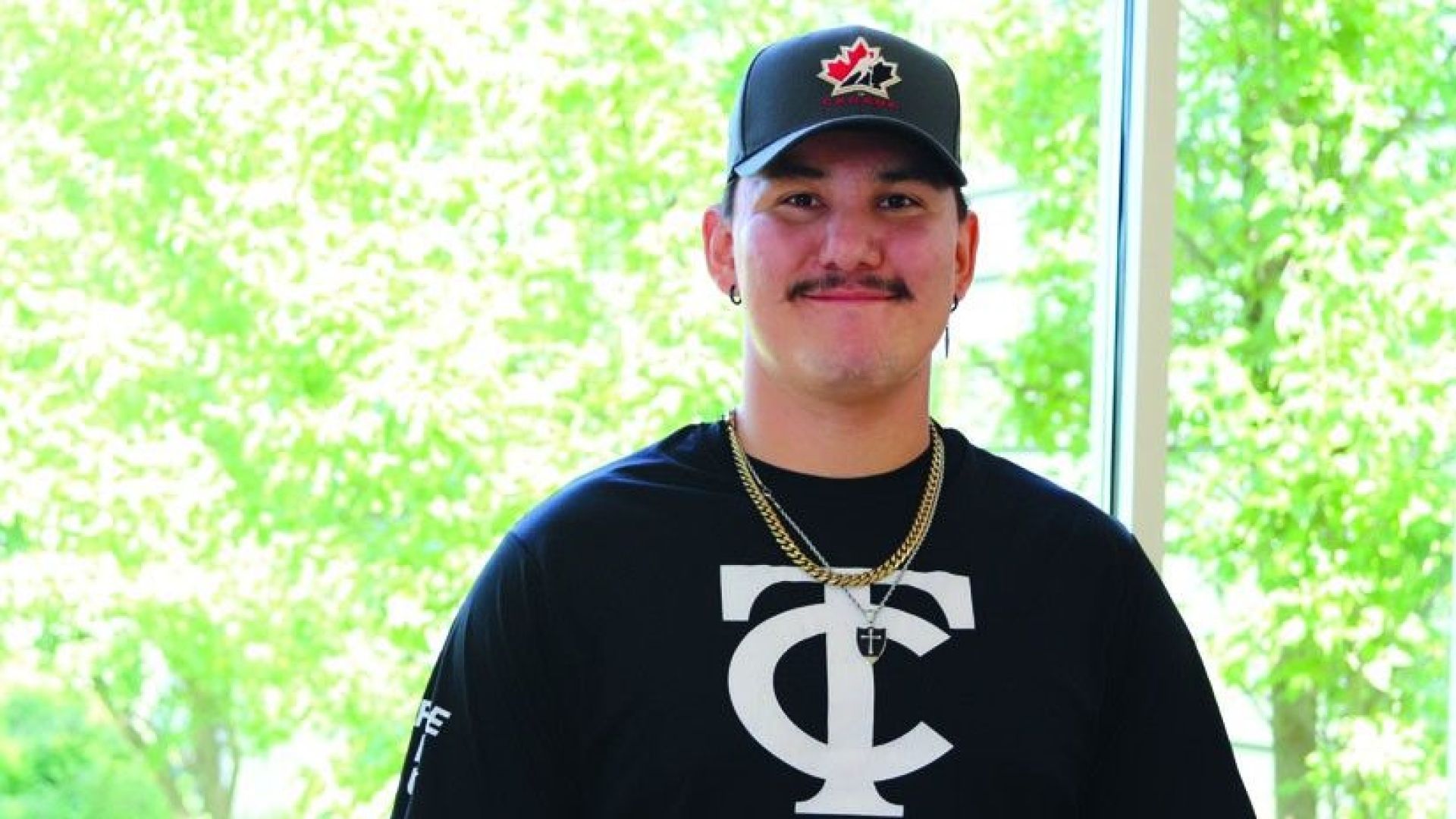
Student Profile: Skylar Running Rabbit
Skylar Running Rabbit has come a long way. First, he came to Tompkins Cortland Community College from the Siksika Nation just outside of Calgary in Alberta, Canada. He came almost all the way across the continent in 2020 for one major reason: to play lacrosse. He was very successful on the field, earning conference player of the year honors as a freshman, but he struggled with academics and was forced to take some time off. He returned in 2023, and turned things around. He connected with the campus community; he found his passion in the classroom; he became a Dean’s List student – he found his home.
His second run at TC3 has been very different from his first, but both are part of his story.
TC3 has great people and they can give you that home-away-from-home. This whole school has helped me build a sense of family here.
Why did you choose TC3?
It came down to picking a sport, because I knew I wasn’t going to go to school if I didn’t pick a sport. I chose lacrosse. I knew I had to go JUCO (junior college), and for lacrosse, that meant I was going East. I graduated high school in 2020, so I couldn’t do a visit, but after talking to the coaches, I figured TC3 was the best fit for me.
You came a long way from Alberta, Canada to TC3. What was that experience like?
It was tough on my family when I left. I was the first to go so far away. It hit my parents and grandparents very hard to see me leave.
It was a big change for me, as someone who had never really been away from home. Going to school 36 hours away, you can’t really go home whenever you feel like it. So that was an adjustment. It was tough not having that sense of home close by, especially at a commuter-heavy school. Plus, I started during COVID, which wasn’t very enjoyable.
I kept very much to myself and didn’t connect with anyone. And I didn’t do well academically. I went home after my first year and thought maybe school just wasn’t for me. I’ve never been good at school, so when I first was sent home, there was that debate within myself about whether I should go back, that maybe I don’t need to go. I spent a lot of time talking to my parents, and after a year away, I decided to come back.
What do you hope to accomplish by coming to TC3?
I came here earn a degree and then carry on to a four-year. I originally wanted to go to a Division I university, but now I realize as long I can continue to play and earn a four-year degree, it doesn’t matter what division.
I like to think I’m setting a path for other First Nation athletes to see what I have done, that even though I failed at school I was able to work my way back.
What are you long-range dreams beyond TC3?
I started as an exercise science major, but that really wasn’t for me. When I was back home after my first year I did some volunteer work with people with disabilities, in part because my brother has a disability. I really liked what I was doing and felt pretty good about it. When I came back to TC3, I did a much better job connecting with people on campus. Ash (Ashley Dickson, TC3’s Special Populations Community Coalition Coordinator) helped me find the human services major, and that has been a much better fit.
After I complete my schooling, I want to get back home and help out at the reservation. My volunteer work during my year off was with kids with autism and Asperger’s, helping them get into sports. Sports has been a big part of my life, and I think it should available be for anyone whether they are able bodied or not able bodied. I know it’s a cliché, but sport are for everyone. I want to be part of that, helping kids with disabilities find sports that they can play. Making sports more accessible for them is what I want to do back home.
What advice would you give yourself if you could go back in time to your first day at TC3?
Take your time and figure it out. Take more time to find a major you want to be in, or at least don’t get into a major you don’t know about. When I had the time off to think, and then got into the right program, that set me up for success.
And make those connections. TC3 has great people and they can give you that home-away-from-home. This whole school, at least the people I have met, like Ash, Declan (Declan Fullerton), the entire health and wellness office, have helped me build a sense of family here and that has definitely made it a lot easier. I can walk into any of their offices and have a conversation, chat it up and not feel like I‘m unwanted or bothering anyone. That has definitely made it easier and played a role in my success.